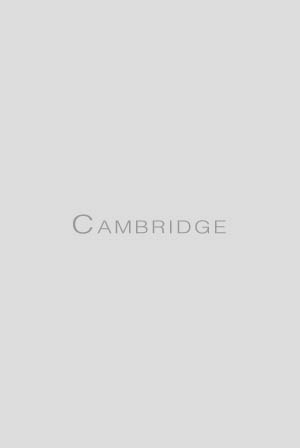No CrossRef data available.
Article contents
Thomas Lodge's Letters to William Trumbull
Published online by Cambridge University Press: 20 November 2018
Extract
Modern biographers of Thomas Lodge have presented a remarkably clear record of his activities, both as writer and physician. However, the period of Lodge's second exile still remains obscure. Although Lodge's biographers agree that because of his Catholicism he fled to the continent during the first decade of the seventeenth century, none has been able accurately to record these years abroad. For example, Lodge's recent scholarly biographer, Charles Sisson, says that this second exile may have begun as early as May 8, 1604. But this statement is inaccurate, for on January 9, 1605/06 Lodge was indicted in London for recusancy, along with Ben Jonson and Edmund Boulton. Professor Sisson also argues that ‘Lodge was allowed to return [to England] early in 1611, as appears from an Act of the Privy Council of 28 January 1611, protecting him from indictment for recusancy, and from the letter dated 17 January 1611 in which he expressed his thanks to Sir Thomas Edmondes for help in bringing about his repatriation.’ But Lodge had returned to London as early as September 21, 1609 as will appear below.
- Type
- Research Article
- Information
- Copyright
- Copyright © Renaissance Society of America 1965
References
1 N. Burton Paradise, Thomas Lodge: the History of an Elizabethan (New Haven, 1931); Charles J. Sisson, ‘Thomas Lodge and His Family,’ Thomas Lodge and Other Elizabethans, ed. Charles J. Sisson (Cambridge, Mass., 1933), pp. 1-163; Alice Walker, ‘The Life of Thomas Lodge,’ RES, IX (1933), 410-432, x (1934), 46-54; Edward Tenney, Thomas Lodge (Ithaca, 1935); Pat M.Ryan, Jr., Thomas Lodge, Gentleman (Hamden, Conn., 1958).
2 P. 109.
3 Dom Hugh Bowler, ed., London Sessions Records 1605-1685 (Catholic Records Society, London, 1934), p. 3.
4 P. 110. Sir Thomas Edmondes was appointed ambassador to the Archduke at Brussels in 1604. He was recalled in 1609 and appointed ambassador to Paris. Later, in 1617, he became Treasurer of the Royal Household.
5 Folger MS. G. b. 10, Fol. 8or. This letter was discovered by Professor Ernest A. Strathmann, who generously turned it over to me for inclusion in this article. I have modernized u/v.
6 E. K. Purness and A. B. Hinds, eds., Report on the MSS of the Marquess of Doumshire, 4 vols. (Historical MSS Commission, London, 1936-40). Since these letters did not begin to be reprinted until 1936, they were not available to Lodge scholars, except Pat M. Ryan, Jr. He seems not to have been aware of them.
7 P . 52.
8 The discrepancy between the seven years mentioned here and the three or four years of Lodge's second exile may be accounted for by the fact that although Lodge was confirmed as a Doctor of Medicine at Avignon in 1598 he apparently did not return to England until 1601. The intervening years were, perhaps, also spent in the Royal Hospital at Macklin.
9 Paradise, p. 49.
10 William Trumbull served as secretary to Sir Thomas Edmondes beginning in 1605. When Edmondes returned to England in 1609, Trumbull stayed on as ambassador. In each of the years 1606-09 Trumbull crossed to England in the spring, remaining there until July or later. This explains why all of Lodge's letters addressed to Trumbull in London were written between February 25 and July 12. Lodge's relationship to Trumbull is not clear. Lodge was friendly with Trumbull's mother, mentioning her frequently in the letters and took a fatherly interest in William (the last letter is especially indicative of this). But beyond this, nothing can be stated with certainty.
11 Downshire, II, 24-25.
12 Paradise, pp. 55-56.
13 Downshire, II, 94.
14 Downshire, II, 249-250.
15 Downshire, II, 92-94.
16 Downshire, II, 112-113.
17 Downshire, II, 114-115.
18 Doumshire, II, 140
19 It has generally been accepted that Lodge was married to Jane Aldred, widow of Solomon Aldred, a spy for Walsingham; and that this lady was the daughter of John Fernaley (Walker, x, 53).
20 Downshire, II, 189-190.
21 Downshire, IV, 215.
22 F. P. Wilson, The Plague in Shakespeare's London (London, 1927), p. 22.


